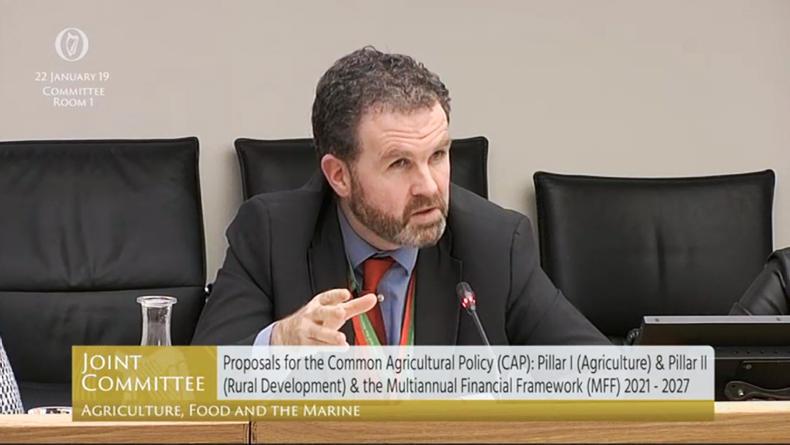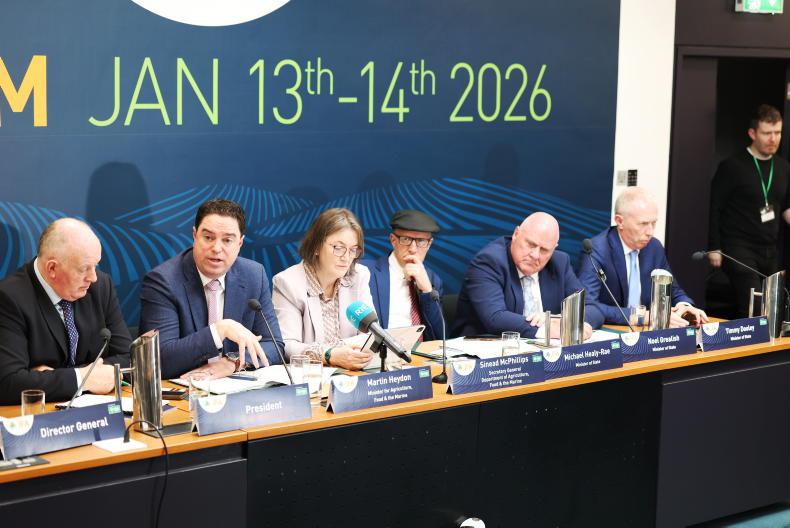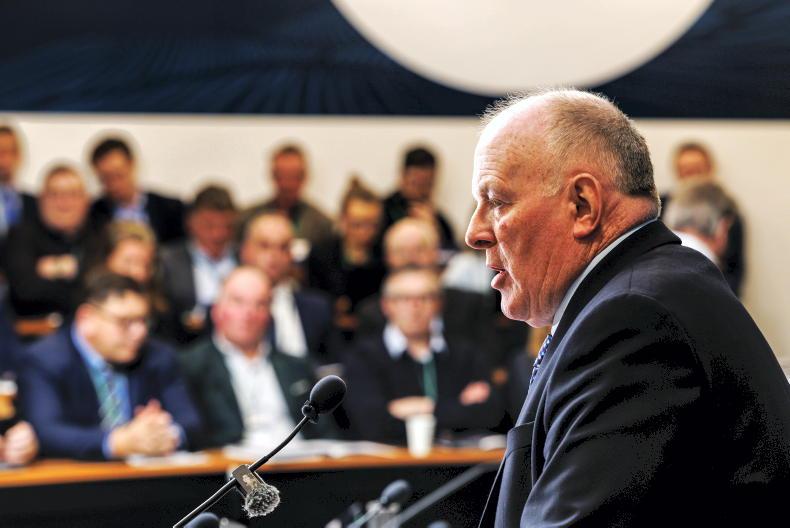The Department of Agriculture will appoint consultants in mid-February to design the schemes due to replace current support programme for farmers in the CAP after 2020, Department assistant secretary Colm Hayes told a joint sitting of the Oireachtas committees on agriculture and on rural and community development this Tuesday. Consultations with stakeholders will begin at the end of February or beginning of March,
Following initial analysis by the Department, the consultants recruited by public tender will design a "needs analysis" combining environmental measures, farm incomes and what the markets does or does not support.
They will then "come up with ideas for schemes," Hayes explained, all in consultation with the industry.
"Nothing will be submitted to Brussels without consultation," he added. Meanwhile, he said the Government would continue to negotiate in Europe on key concerns in the regulations underpinning the next CAP.
BudgetHayes re-stated the Irish Government's position that the 5% cut to the CAP budget from 2021 currently on the table is "unacceptable".
Capping of paymentsThe current EU proposal is to reduce payments above €60,000 per farm and set an overall €100,000 limit.
However, farmers could add salaries of staff employed on the farm to this ceiling.
Hayes said Ireland was in favour of the capping proposal as well as increased convergence between entitlements, but opposed the salary exemption.
He highlighted the "administrative complexity of trying to do that, both for the farmer concerned and for us. Our priority every year, particularly with Pillar I payments, is to get them out at the earliest possible date that we can, and we always do at the usual 16 October deadline. If we have to start factoring in individual P60s and P45s and all sorts of other factors, I think that's going to be a complexity that nobody wants to see".
Environmental conditionsDirect payments under the first pillar of the CAP will be subject to stricter environmental conditions than currently. Hayes hoped there would be sufficient flexibility to adapt environmental requirements to local conditions of farm types, giving the example of nutrient management plans, which are efficient to improve the environmental performance of more intensive farms but would not make sense to generalise to others. He also warned: "Member states will need to be allowed sufficient flexibility to implement measures under Pillar I that do not the bar impossibly high for voluntary schemes under Pillar II."
Short timelineThe Department must submit its draft strategic plan to the European Commission by 1 January 2020, even though the EU regulations and the budget for the CAP will only be set during this year. "We're working to this deadline," Hayes said, but he warned that it was "challenging".
Read more
Listen: CAP eco scheme should be mandatory for farmers
Nine-month CAP countdown begins
The Department of Agriculture will appoint consultants in mid-February to design the schemes due to replace current support programme for farmers in the CAP after 2020, Department assistant secretary Colm Hayes told a joint sitting of the Oireachtas committees on agriculture and on rural and community development this Tuesday. Consultations with stakeholders will begin at the end of February or beginning of March,
Following initial analysis by the Department, the consultants recruited by public tender will design a "needs analysis" combining environmental measures, farm incomes and what the markets does or does not support.
They will then "come up with ideas for schemes," Hayes explained, all in consultation with the industry.
"Nothing will be submitted to Brussels without consultation," he added. Meanwhile, he said the Government would continue to negotiate in Europe on key concerns in the regulations underpinning the next CAP.
BudgetHayes re-stated the Irish Government's position that the 5% cut to the CAP budget from 2021 currently on the table is "unacceptable".
Capping of paymentsThe current EU proposal is to reduce payments above €60,000 per farm and set an overall €100,000 limit.
However, farmers could add salaries of staff employed on the farm to this ceiling.
Hayes said Ireland was in favour of the capping proposal as well as increased convergence between entitlements, but opposed the salary exemption.
He highlighted the "administrative complexity of trying to do that, both for the farmer concerned and for us. Our priority every year, particularly with Pillar I payments, is to get them out at the earliest possible date that we can, and we always do at the usual 16 October deadline. If we have to start factoring in individual P60s and P45s and all sorts of other factors, I think that's going to be a complexity that nobody wants to see".
Environmental conditionsDirect payments under the first pillar of the CAP will be subject to stricter environmental conditions than currently. Hayes hoped there would be sufficient flexibility to adapt environmental requirements to local conditions of farm types, giving the example of nutrient management plans, which are efficient to improve the environmental performance of more intensive farms but would not make sense to generalise to others. He also warned: "Member states will need to be allowed sufficient flexibility to implement measures under Pillar I that do not the bar impossibly high for voluntary schemes under Pillar II."
Short timelineThe Department must submit its draft strategic plan to the European Commission by 1 January 2020, even though the EU regulations and the budget for the CAP will only be set during this year. "We're working to this deadline," Hayes said, but he warned that it was "challenging".
Read more
Listen: CAP eco scheme should be mandatory for farmers
Nine-month CAP countdown begins










SHARING OPTIONS